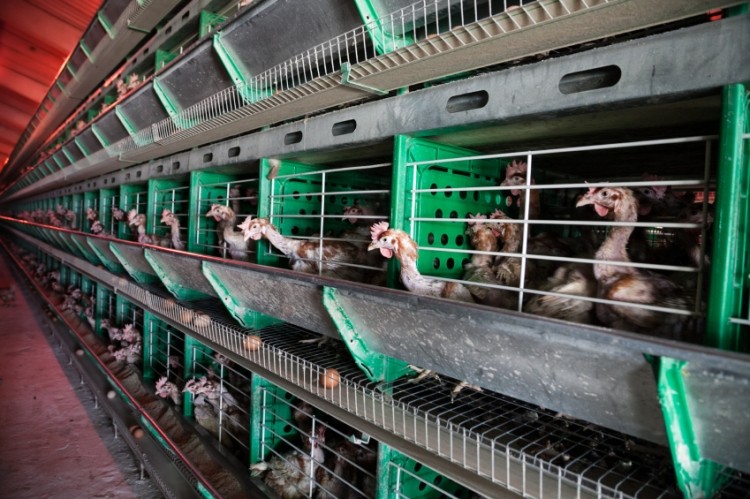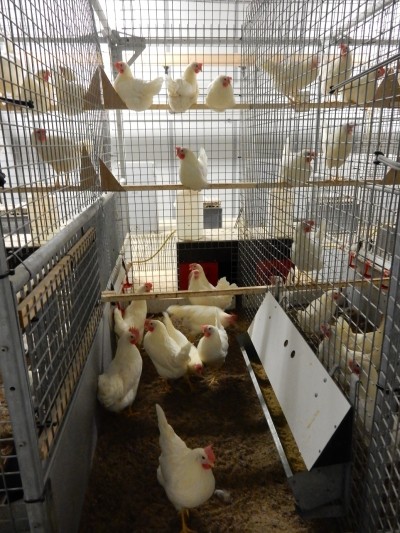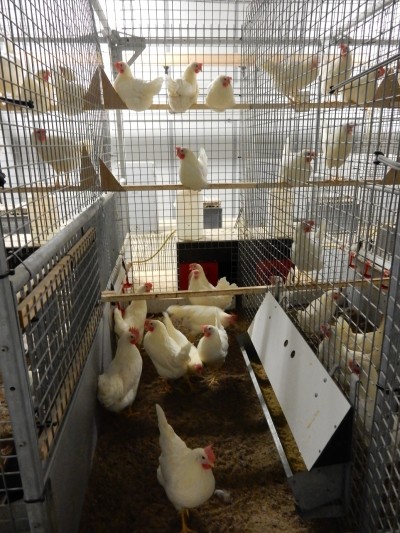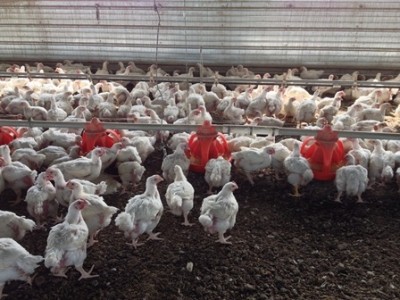Phytase supplements may improve eggs in heat stressed layers

Research published in Animal Feed Science and Technology and funded by Razi University in Iran, examined the interaction of phytase (PHY) with levels of dietary rice bran (RB) and non-phytate phosphorus (NPP) in heat-stressed laying hens.
“It can be concluded that the positive effects of PHY supplementation were clearly evident for laying hens reared under the high ambient temperatures pertaining to this study,” researchers said. “At high concentration of phytate (high-RB diet) and/or low level of NPP (2.5 g/kg), response to supplemental PHY appears to be increase in terms of performance and egg quality in heat-stressed laying hens.”
Why this project
“The objective of this study was to investigate the effects of PHY supplementation of diets with different levels of RB and NPP on performance, egg quality traits, blood lipids profile and leukocyte subset response in laying hens reared indoors under high environmental temperatures,” said researchers.
Previous studies have examined the use of rice bran in poultry feed and found that adding supplemental PHY both increased retention of phosphorus (P) and improved phytate hydrolysis, they said.
“In another study, microbial PHY was effective in improving P utilization in brown-egg layers fed corn-soybean meal-based diets containing 22% RB and at its recommended level could replace at least 0.12% total P from dicalcium phosphate,” they added.
However, the studies have not looked at birds in heat stress conditions, they said, and there is no published data examining the use of supplemental PHY in low-NPP or high-RB diets during high temperature conditions.
Heat stress is an important consideration for poultry production because it can damage the welfare and health of the birds, said the scientists. Birds suffering from heat stress sometimes display reduced production and performance; reduced blood triglyceride concentration and hepatic lipid deposition; and an increased heterophil to lymphocyte ratio.
Study details
For 10 weeks, 288 laying hens were fed one of 12 diets in high temperature conditions, said researchers. The temperatures ranged from 26 to 36 degrees Celsius or 78.8 to 96.8 degrees Fahrenheit and the relative humidity was 42.3% to 55.1%.
The corn- and soybean meal-based diets included: three concentrations of rice bran, 0 g/kg, 75 g/kg and 150 g/kg which amounted to 1.8 g/kg, 2.7 g/kg and 3.5 g/kd phytate phosphorus with one of two different levels of non-phytate phorophorus at 2.5 and 3.5 g/kg; and with one of two levels of microbial phytase at 0 and 150 FTU/kg, they said. The microbial phytase is known commercially as Phyzyme XP 5000G.
Treatments were given from week 32 to 42 weeks of age and egg production, weight and feed intake were noted, the scientists said. Unmarketable eggs were counted, egg traits were recorded as were leukocyte subset counts and the blood lipid profile.
Bird weights were recorded at the start and end and the feed conversion ratio (FCR) was calculated, they added.
Findings
The highest level of rice bran negatively affected egg production (EP), FCR, shell weight and thickness, researchers said.
Low-NPP diets also reduced shell weight and thickness when compared to eggs from birds getting a higher amount of NPP, they said. And, the stress indicating heterophil to lymphocyte ratio increased in birds getting the low-NPP diet.
Negative egg traits were improved in the birds receiving microbial phytase, they said.
“Supplemental PHY improved (p< 0.05) EP, FCR and unmarketable eggs but the magnitude of the responses was greater in low-NPP and high-RB treatments, resulting in significant RB × NPP × PHY interactions,” they said. “Egg mass, shell weight and shell thickness were also improved (P < 0.05) by PHY addition but the response was greater at the highest concentration of RB, resulting in a significant RB × PHY interaction.”
Similar responses were seen in birds getting the low-NPP diets, likely from a strong interaction of NPP x PHY, they said.
Blood triglyceride and total cholesterol decreased with higher amounts of rice bran in the hens’ diets, said researchers.
“These findings could be applied for further improvement of commercial laying hens to be reared in tropical climate conditions,” said the Iranian team.
Source: Animal Feed Science and Technology
Title: Effect of phytase supplementation of diets with different levels of rice bran and non-phytate phosphorus on productive performance, egg quality traits, leukocytes profile and serum lipids of laying hens reared indoor under high environmental temperatures
DOI: 10.1016/j.anifeedsci.2015.06.024
Authors: A. Mohebbifar, M. Torki, H. Ali Ghasemi
















